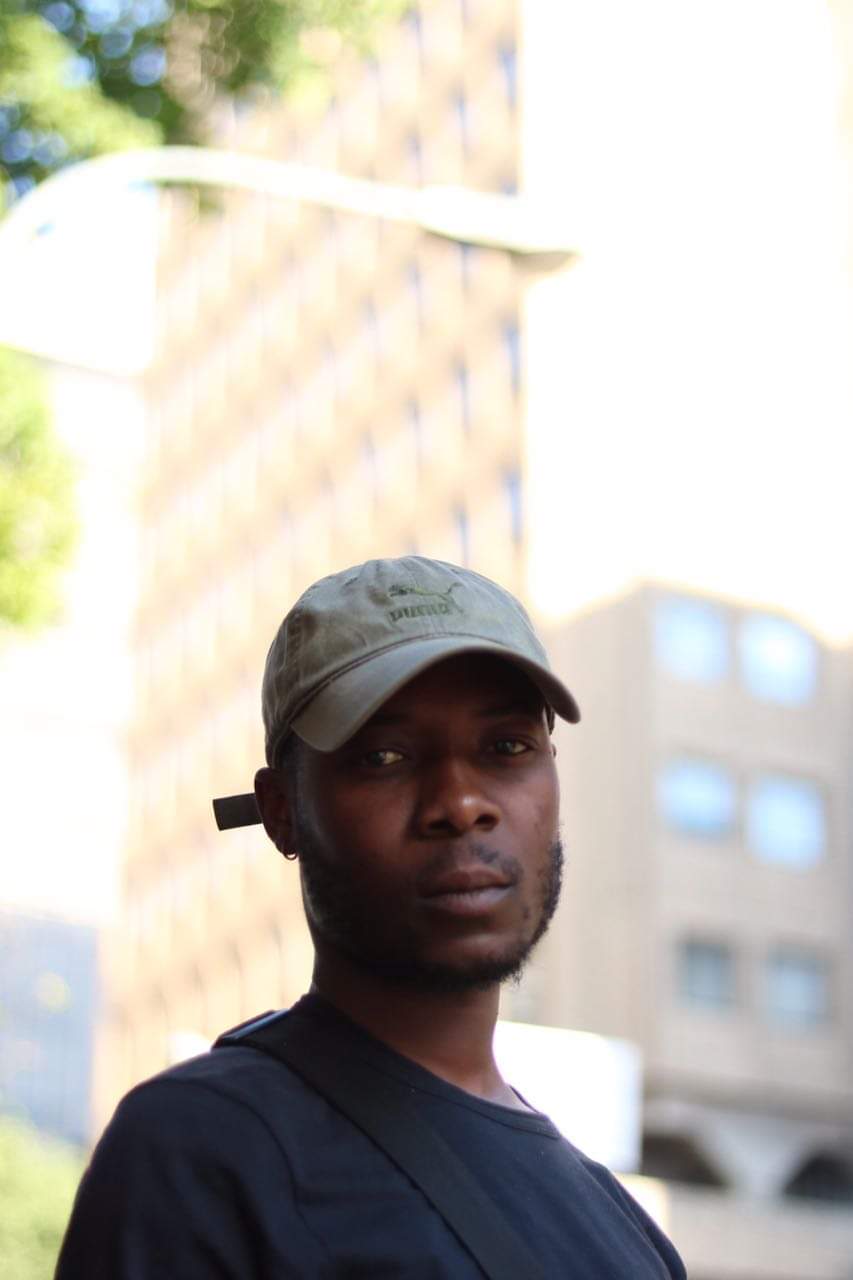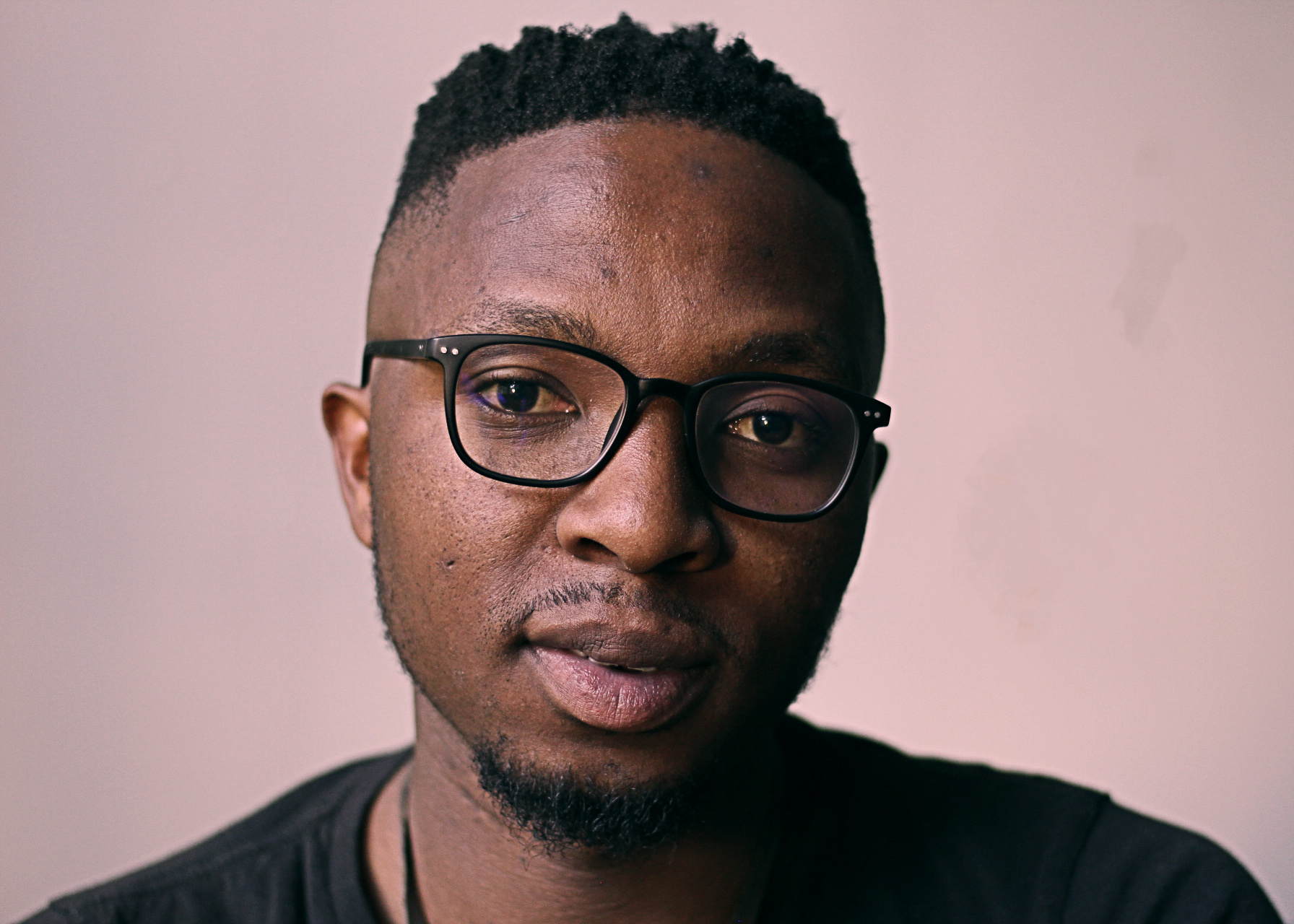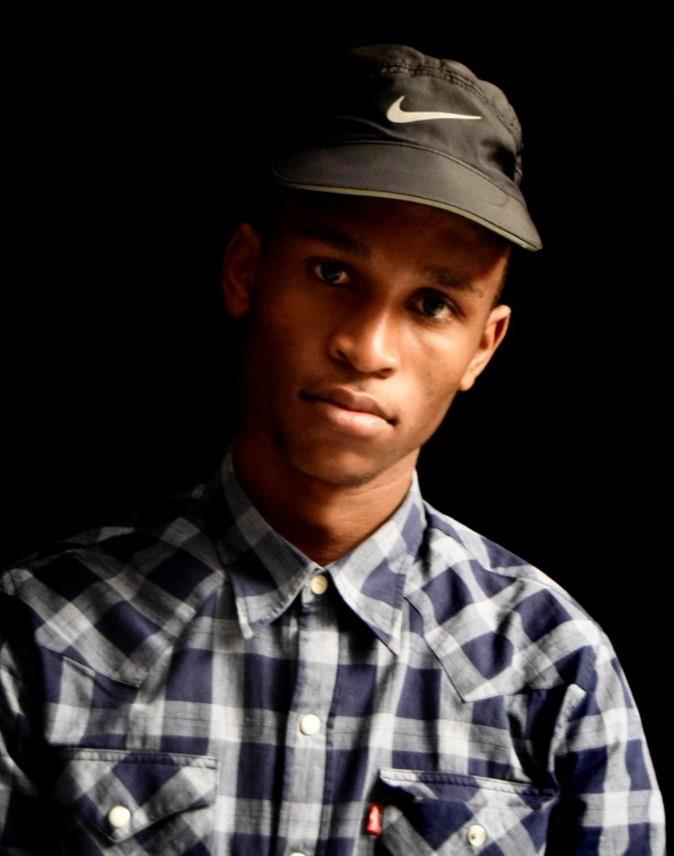He graduated from Artist Proof Studio in 2012 and was offered a residency at William
Humphrey’s Art Gallery (WHAG) in Kimberley in 2013 under the mentorship of the late Dumisani Mabaso.
He was then offered an internship at Artist Proof Studio and in 2014 started teaching printmaking to first and second year
students full-time. He travels to Mozambique twice annually to take photographs and upon return creates new works inspired by his visit back home.
Khoza specialises in painting, monotype and combined printmaking techniques and has recently had numerous exhibitions with
Artist Proof Studio and various other galleries.
Artist Statement:
My work started as a comparison between a game of chess and my background. In this game
we mostly hear about the “King” and how it should be protected and tend to then forget the significance of all other pieces.
Two pieces I focused mostly on in the past year were a "Queen” and "Pawn/s" with the absence of the "King."
Each piece moves in its own very unique way, while a “King” can only move one step/block at a time.
A “Queen” can move as many blocks as possible and “Pawn/s” are sacrificed to buy time and protect the “King”.
I so feel we are protecting a useless piece.
Umsebenzi wendoda (work/duties of a man) is a visual letter to mothers who raise strong
men in situations that are unkind to them as mothers. It’s a body of work dedicated to women who had
to raise a man in the absence of the father figure in a society that considers raising a man to be the duty of
a man, yet provides few positive father figures as role models.
The artist pays tribute to the mother/s that underwent sacrifices, waking up in early hours,
toiling all day to put a meal on the table.
The work is a nod to the woman playing both roles in a house - proud of her son growing into the young man
she always hoped for. The load she carried alone is lessened and she can finally rest.
“Umsebenzi wendoda ungo wami, sengakhula” (The duties of a man is now mine, I’m old enough.)
Mamorobela is an independent artist and a designer and recently completed his Diploma in Fine Arts
at the University of Johannesburg (UJ).
He uses different types of mediums in both disciplines, from drawing, painting, sculpting, printmaking
to digital art and design.
Artist Statement:
My artworks speak about the lives, issues, struggles and journeys of the people of Johannesburg.
The paintings focus on current issues in different parts of the city and how these different sections of the city
interconnect, underscoring how they’ve been neglected by government and a lack of service delivery.
Johannesburg is a busy city filled with crime, poverty, fraud, corruption and conversely, new opportunities -
but with all this comes pain and happiness.
The paintings I create consist of highly textured abstract backgrounds interpreting the dirty streets
of our current society but still highlighting the beauty of this city we call home. The imagery used is
inspired by the architecture, people and cultures that interact with one another in this dystopian landscape.
My art is a form of storytelling so I use my influences, news and memories of where I’ve been
to inform me the subject matter on which I focus.
Mayhew explores the junctures between current technologies and traditional forms of
expression. His interest lies in mitigating the imaginations achieved through machine learning toaugmented reality (AR) as
"invisible" models that deliver either haunting or invasive commentary in a socio-political context.
Artist statement:
Post Apartment is a project that deals with inner-city Johannesburg’s hijacked buildings and thesocial
and historical implications of these buildings.
The project derived from the documentation of a hijacked building opposite to the artist’s studio.
The documentation was done through a
cellphone “mirror-photo” app as it slices an image in half or into a quarter.
It then duplicates and flips the sliced section to fill the screen. This resulted in a personifying effect of the building as its
structural qualities became either mouths or eyes that simulate an
observation and/or an act of communication.
Phones play an important role in the project as the building is synonymous with
thieves that robbed passersby of their belongings, especially their phones.
This resulted in the building's ostracism. Cellphones act as pocket-sized manifestations of
our recorded history and losing them represents a loss of self and our connection to a network.
Thato has showcased his work in group exhibitions at the Pretoria Art Museum, Number Four Museum – Constitution Hill,
Oliewenhuis Art Museum and Polokwane Art Museum.
He’s a Sasol New Signatures 2019 finalist, Art Bank of South Africa is a collector of his work, and Business and Arts
South Africa (BASA) has notably nominated him for the Department of Arts and Culture “Debut Awards” (2019).
Artist Statement:
To be taught trivia is a 32-component series that emanates from my recent body of work through which I examine
the quality of South Africa's education system as received by grade 11 & 12 learners of our present time.
South Africa spends more on education than the United States of America and the United
Kingdom. Regardless of the money spent, South Africa’s basic education system was rated
126th out of 138 countries in the “World Economic Forum 2016–17: Global Competitiveness Report,”
while its higher education and training was ranked 134th. These rankings are dismal – and herewith,
my sentimentalised portrayal on “NSC Examination
Papers” is compatibly marked by deliberation.
Mayhew explores the junctures between current technologies and traditional forms of
expression. His interest lies in mitigating the imaginations achieved through machine learning toaugmented reality (AR) as
"invisible" models that deliver either haunting or invasive commentary in a socio-political context.
Artist statement:
Post Apartment is a project that deals with inner-city Johannesburg’s hijacked buildings and thesocial
and historical implications of these buildings.
The project derived from the documentation of a hijacked building opposite to the artist’s studio.
The documentation was done through a
cellphone “mirror-photo” app as it slices an image in half or into a quarter.
It then duplicates and flips the sliced section to fill the screen. This resulted in a personifying effect of the building as its
structural qualities became either mouths or eyes that simulate an
observation and/or an act of communication.
Phones play an important role in the project as the building is synonymous with
thieves that robbed passersby of their belongings, especially their phones.
This resulted in the building's ostracism. Cellphones act as pocket-sized manifestations of
our recorded history and losing them represents a loss of self and our connection to a network.
Zwane’s work is centred on feelings of nostalgia and the process of catharsis.
He is interested in everyday life and where it’s headed, but also in how the past inextricably
weaves itself into the present.
The memory and influence of the past and the reality of the present often pose deep psychological
challenges that he expresses through his body of work. The challenges come from the difficulty of acceptance
of the past and acknowledgment of the present - particularly the chasm that can exist between those two realities.
Artist Statement:
As an overall body of work, the pervading focus is on feelings of nostalgia and the process of
catharsis. In observation of the chasm that can exist between past and present realities, I
explore tensions of how this gap is filled with things that we as young South Africans lacked, wished for and
often imagined could have positively contributed to our young lives.
This sense of loss, however, can contribute to vulnerability, honesty, grit and accountability
if we are willing to recognise and build on both our hurt and joy. The understanding of how we
are responsible for the space we hold on earth regardless of our circumstances enables us to preserve
and to be reminded that we have the power to make better choices daily.
I’m continuously inspired by witnessing daily resilience despite challenging circumstances.
My process involves observing and documenting these moments through photography, drawing inspiration
from the emotions I experience when the lens captures a second in time.
Each photo, which I either take myself, comes from family albums, or has been given to me by
friends and associates, evokes a story for me and I use them individually or collectively to recreate
and recompose a narrative underpinned by the rural and township life in which I grew up.
My experience of these perspectives and realities are important to me when recreating the artwork.
These recreated moments are personal, yet universally connect us through collective consciousness of unfulfilled
dreams and desires. I am continually challenged to make empowering choices in my life rather than
remaining paralysed by an unwillingness to accept past and present. It is in this space of vulnerability and loss that I locate my truest work.
Artist statement:
Ukuzizamela (trying for yourself) is a series of sculptures that explores and
celebrate the realities of informal waste pickers in the Vaal region of Gauteng.
The work is inspired by the artist’s interest in the daily lived experiences of informal
waste pickers who remain invisible both within societies and the waste management system due to the kind of work they do.
They are perceived as criminals, dirty, drug addicts and untrustworthy and are seen to be causing problems within societies.
The body of work commends the everyday hard work of informal waste pickers which is the collecting, sorting, and
transporting of waste for resale. Ceramic clay was used to
portray the unique characters of informal waste pickers, elevating their importance as
individuals in spite of the difficult working conditions they operate in.
The use of recyclable waste as part of the sculptures signifies the altering of rubbish from its state
of not having value to something beautiful, thus giving it new meaning, purpose and value.
His preferred mediums include charcoal drawing, painting and some traditional
art forms, but he also experiments with untraditional mediums like salt, maize meal and ashes.
Maimela expresses himself with any household materials.
His work is mostly inspired by issues and conditions surrounding his communities and he strives
to convey a broader story; inspiring the decision to put a mask on most of his subjects and sometimes
conceal or remove the subject's face.
To the artist, the mask is a universal totem that represents life in general. It embodies the spiritual
journeys taken by our forebears in preparation of our lives. The aerodynamic shape represents the
possibilities that one possesses within.
In 2018, he introduced his conceptual art and launched his new body of work Ancestral mask/ Wa
badimo at the Turbine Art Fair through MOCA Gallery.
Artist Statement:
The Ancestors' Mask/Wa badimo concept is a series of surrealism artworks aiming to provoke
emotions and uplift people's spirit by accentuating the notion that our personal journey is more universal than a single story.
My work process is informed by rough sketches and description notes in my sketchbook, which inspire the choice of medium.








